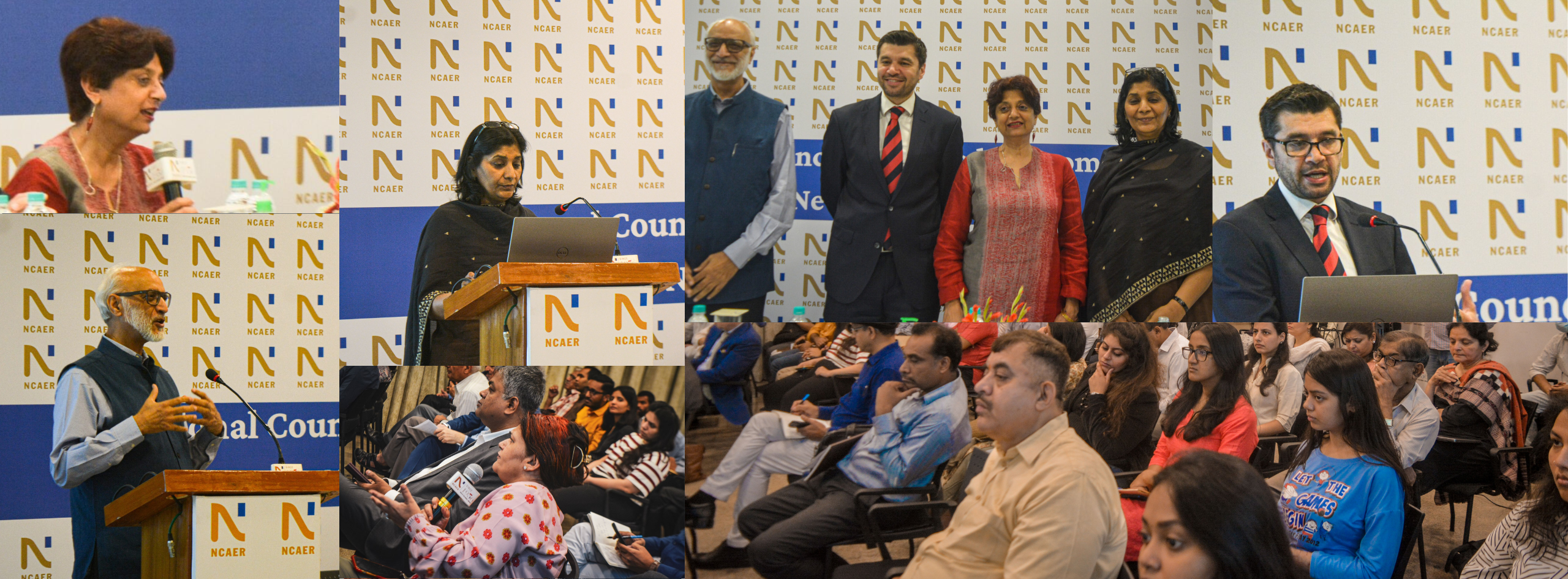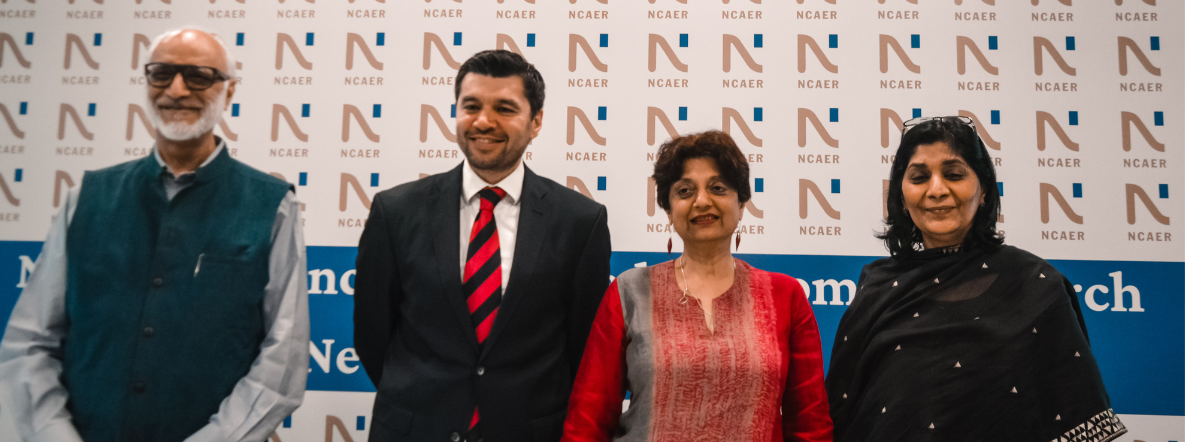NCAER organised an event in collaboration with the International Monetary Fund (IMF) for the presentation of an Analytical Chapter titled, “Inflation and Disinflation: What Role for Fiscal Policy”, from the latest IMF Fiscal Monitor released in April 2023. Dr Marcos Poplawski-Ribeiro, Deputy Division Chief in the IMF’s Fiscal Policy and Surveillance Division of the Fiscal Affairs Department, made the presentation. He has previously held positions in the IMF’s Research, Fiscal Affairs, and African Departments, including as the IMF’s Resident Representative in Gabon during 2017–21.
The upsurge in inflation that began in 2021—the sharpest in more than three decades—has affected fiscal accounts, worsened poverty, and altered the distribution of households’ well-being, calling on policymakers to respond. The Analytical Chapter analyses these developments and explores how fiscal policy can do its part to curb inflation while supporting the vulnerable. The chapter finds that though surprise inflation may offer some breathing room for debt ratios, attempts to keep surprising bondholders have historically proven futile or harmful. Indexation practices vary considerably across countries. Hence, when reviewing them, policymakers need to balance protecting specific groups and avoiding making inflation more persistent. Redistribution effects of inflation, in turn, depend on three channels: consumption patterns, income, and wealth. The chapter also estimates the effect of fiscal policy on inflation, and shows that targeted fiscal policy can support monetary policy in lowering inflation while protecting those most affected by the cost-of-living crisis.
The discussion was chaired by Dr Ratna Sahay, Professor at NCAER. The discussants for the event were Dr Ashok Gulati, Chair Professor for Agriculture at Indian Council for Research on International Economic Relations, and Dr Poonam Gupta, Director General at NCAER and Member of the Economic Advisory Council to the Prime Minister.
Commenting on the presentation by Dr Ribeiro, Dr Poonam Gupta remarked, “The Analytical Chapter of the IMF’s Fiscal Monitor makes it clear that fiscal deficit and public debt, which increased significantly around the world during COVID, have remained elevated over the last two years. Monetary policy alone may not suffice to normalise inflation, and needs to be combined with fiscal consolidation, along with targeted support to the most vulnerable populations.” She also suggested that inflation is declining but will remain above the pre-pandemic level by 2024. “Public debt is an issue of concern in Advanced Economies but Low-Income Countries need debt relief. As for India, it has managed to keep inflation anchored and range-bound within an orbit of 2-6 per cent, and eventually it could settle at around 4 per cent, which is quite manageable”, she concluded.
Highlighting the criticality of controlling inflation, especially in the context of the ramifications of the pandemic for various economies, Dr Gulati averred, “The focus on inflation and measures to curb it in various countries in the Fiscal Monitor are very well-timed and the need of the hour, as in many nations, especially in Africa, Latin America, and South Asia, inflation is not just a number but literally a life-and-death issue. It is thus imperative to devise an amalgamated package comprising components of both fiscal and monetary policy to tame inflation… Trade policy is equally important in controlling inflation in the emerging markets.”













